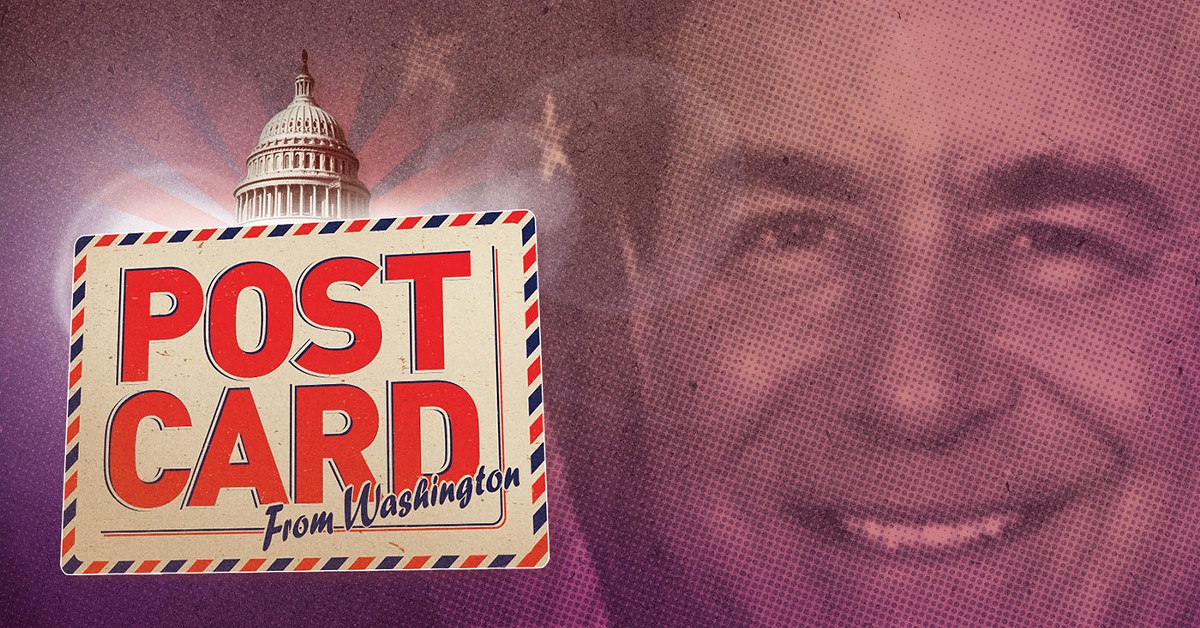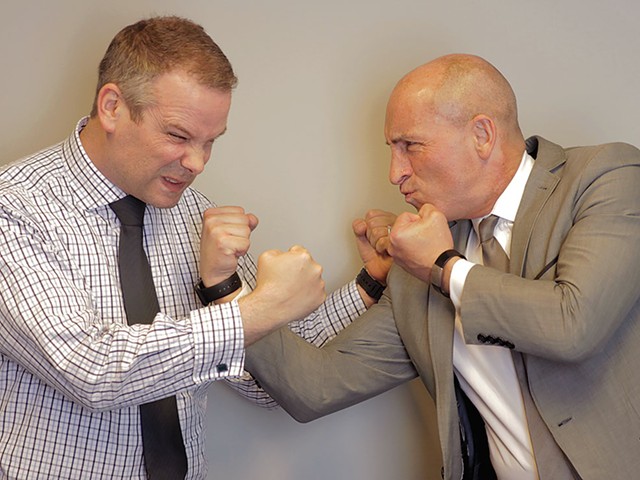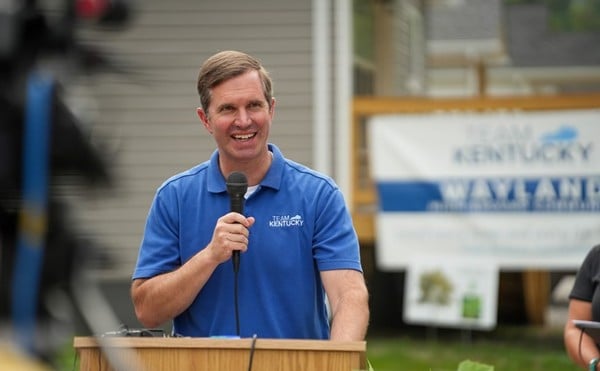A few days ago, I walked into Frontier Diner on Dixie Highway, and a table of four hailed me over. You never know what to anticipate when that happens, but this encounter surprised me.
“Thank you for running positive ads,” one said, the others nodding in agreement. “We can’t stand all the negativity.”
To be honest, I had been contemplating hitting back against the negative commercials being run by my opponent, but that incident reinforced my campaign’s decision to avoid even mentioning her.
Heaven knows we saw enough negative ads during the past few months. I don’t know how much money was spent on spots in the Indiana Senate race, but I know local TV station managers are smiling all the way to the bank. Initial figures indicate more than $4 billion has been spent on television and digital advertising across the country this year, an amount that eclipses total spending in the 2016 presidential year.
The important question is whether the country benefited.
I always say that people hate political ads, they don’t watch them, and they don’t believe them; otherwise, they’re a great tactic. Still, most candidates are afraid not to advertise, because in many races, it’s the only way to reach large numbers of voters with your message. And even if only a small percentage of the voters are influenced by them, they can be decisive in close contests.
Now, since this column is being written before Election Day, I don’t know whether I won or lost, but I sure didn’t like what Vickie Glisson’s ads said about me. Don’t get me wrong. I’m not whining. I don’t think anything she did was unfair. But it’s frustrating when an ad says, truthfully, that I have missed 330 votes during my 12 years in the House, but doesn’t mention that I cast almost 9,000, for an “attendance” record of over 96 percent.
And I couldn’t possibly explain in 30 seconds that the reason I sometimes miss a vote is because I have to choose between leaving a meeting with constituents and going to the floor to vote to “approve the Journal,” a meaningless, perfunctory procedure that usually doesn’t warrant a roll call vote.
And it’s frustrating to be called “ineffective” based on a Vanderbilt University calculation of how many bills a member of Congress has passed with his or her name attached. Even its own report has a disclaimer that says its rating is only one measure of a congressman’s effectiveness. (Incidentally, Mitch McConnell has only five such bills in the last 10 years and Rand Paul none.) Again, a 30-second response would not allow that explanation. Ultimately, I know that my “effectiveness” was judged by the voters, but some voters may have made that determination based on the commercial.
As I said, I’m not whining, and those ads pale in comparison to those that mock or assail a candidate’s character or associate them with hateful people or heinous positions.
And that’s the point of this column.
In this environment, with partisanship sadly edging into hate, negative ads are contributing to the toxic, political polarization that now characterizes American politics.
If you think a candidate truly is the spawn of Satan, and you’re not the most stable of individuals, you might be tempted to throw a politician’s food out into the street or, more seriously, grab a gun or make a pipe bomb.
I wish James Carville and Mary Matalin we’re still omnipresent on television. For those who don’t remember them, they are a married couple who couldn’t be more polarized in their political perspectives. She is a staunch conservative, and he is a diehard liberal, but they embrace and, I think, even relish their disagreements. We need people like that in our public discourse, because they would help show us that politics doesn’t have to be a reason to fight. Instead, politics should be a pathway to empathy. In today’s world, we all live in bubbles and politics can and should be the way we come to an understanding of how others feel and live. All politicians should commit to nurturing that idea.
If I have been successful in the election, I look forward to listening to all Louisvillians for the next two years. If I have been retired, I thank Louisville for the honor I have been given for the past 12 years. And either way, I will be a regular at Frontier Diner. The customers and the omelets are superb. •
U.S. Rep. John Yarmuth, founder of LEO, has represented Kentucky’s 3rd Congressional District since 2007 and is the top Democrat on the House Budget Committee.






